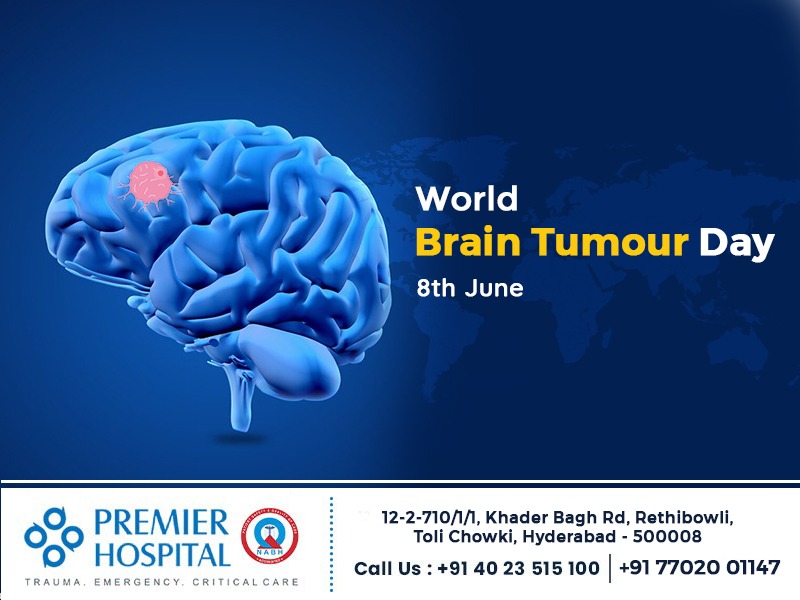World Brain Tumour day 2021
by Premier Hospitals | June 8, 2021 |
Every year World Brain Tumor Day is observed on the 8th of June. This was an initiative taken by the German Brain Tumor Association as a tribute to all brain tumour patients and their families in the year 2000. Over time it got worldwide recognition and turned out to be a global event to raise awareness and educate people all over the world about the brain tumour and its complications. According to the statistics, in India, the prevalence of tumours associated with the central nervous system (CNS) is 5-10% per 100,000 population and increasing gradually. Cancer originated in other body parts, and that spreads to the brain is called metastatic brain tumours, and nearly 40% of all types of cancer have the potential to spread to the brain if proper care is not taken. Some trusted sources say that the tumours in the brain and central nervous system are the second leading cancers affecting many children and accounts for 26% of childhood cancers. What Is A Tumour? A tumour is said to be the growth of mass of unwanted tissue in the body, and it might look like swelling. According to The National Cancer Institute(NCI), a tumour is referred to an abnormal growth of tissue that occurs when the body cells divide more than normal division and do not decay when they have to. What Is A Brain Tumour? When the tumour develops in your brain, it is called a brain tumour and is defined as the cells in your brain grow in an abnormal way. The tumour is classified into two types - malignant (cancerous) and benign (non-cancerous). The malignant tumour cells grow unusually and can spread to other body parts, but the benign tumour cells will not grow or spread even if the tumour removed surgically, does not regrow. Fortunately, most brain tumours that affect the brain are non-cancerous and less than one-third of the tumours are cancerous. However, they might develop at any age. Tumours are graded into 4 different stages based on the location, the rapid growth of tumour cells and the risk of spreading to adjacent organs. Some Important Facts to Know About Brain tumour- A brain tumour can develop at any age.
- The precise reason for causing brain tumour is yet to be discovered.
- A brain tumour’s symptoms vary based on the size, type, and location of the tumour.
- Astrocytoma, Meningioma, and Oligodendroglioma are the most common brain tumours diagnosed among adults.
- Medulloblastoma, astrocytomas, ependymoma, and brain stem glioma are the common brain tumour types diagnosed in children.
- Hereditary and exposure to certain chemicals and high dose X-rays increase the risk of developing a brain tumour.
- Brain tumours are generally diagnosed and treated by Neurologists depending on the patient's medical history and after performing various tests on the brain and nervous system.
- Brain tumour has a wide variety of treatments which includes surgery, therapies like radiation therapy, and chemotherapy or a combination of treatments. A doctor suggests the right treatment considering various factors.Â





